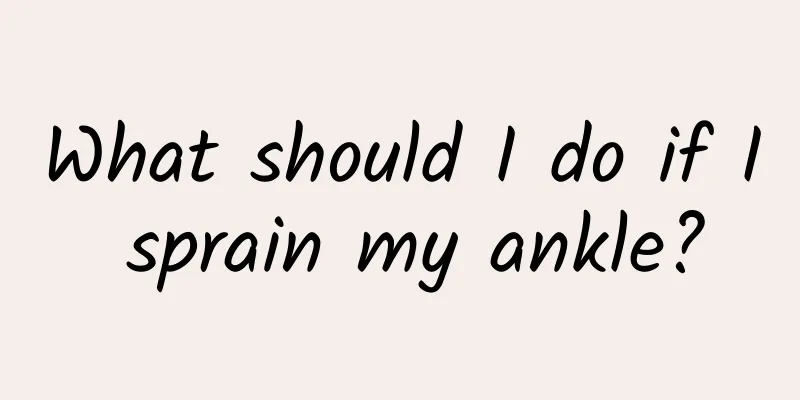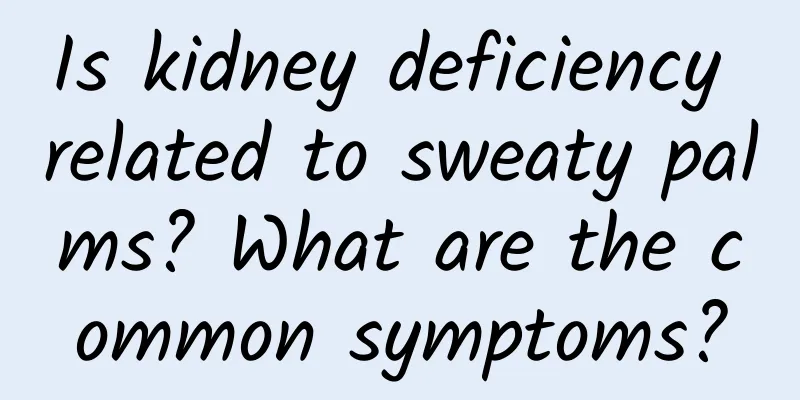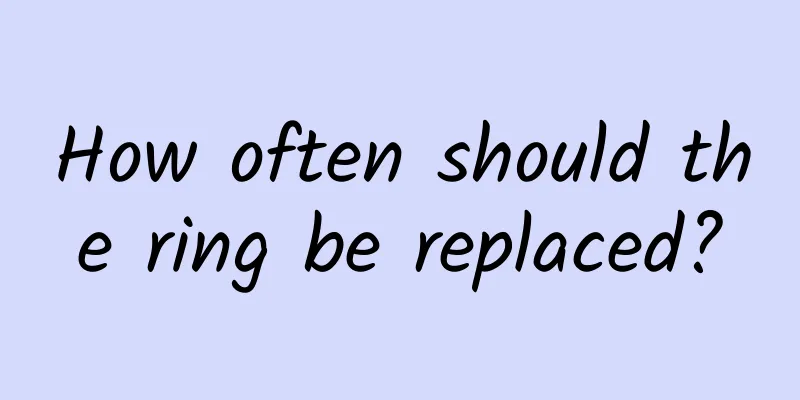What should I do if my child always has a fever at night?

|
If the child has a fever at night, parents must pay attention, but don't panic. The child's body functions are not yet fully developed, so it is normal to have a fever. However, correct measures must be taken to deal with it. For example, you must monitor the child's body temperature at any time. As long as the child's temperature does not exceed 38.5 degrees, you can use some physical cooling methods. Of course, if the temperature continues to rise, you must go to the hospital for treatment in time. What should I do if my child always has a fever at night? 1. Measure body temperature. Parents should not panic if their children have a fever at night. The first thing to do is to test the child's temperature with a thermometer to see the extent of the child's fever, and then take corresponding measures. 2. Physical cooling. When the child's body temperature is below 38.5 degrees, physical cooling methods can be used to help the baby cool down. (1) Drink more warm water, vegetable juice and fruit juice. Let your baby drink more water and replenish body fluids. This is the most basic method of reducing fever. It is very effective and practical and suitable for all babies with fever. Do not give your baby cold water, but warm water, because fever in babies is often accompanied by gastrointestinal symptoms and cough, and drinking cold water will aggravate these accompanying symptoms. (2) Warm water bath, that is, wipe the whole body with a warm water towel. This is a great way to cool down any baby who has a fever. The water temperature is more suitable at 32-34 degrees, and each wiping time should be more than 10 minutes. The key areas to wipe are the skin folds, such as the neck, armpits, elbows, groin, etc. (3) Warm water bath: The water temperature should be about 3-4°C lower than the patient's body temperature, and each bath should last for 5-10 minutes. Many parents think that babies should not be bathed when they have a fever. In fact, on the contrary, giving babies a warm bath can help cool them down. A warm bath is suitable for all babies with a fever. (4) Low-temperature chamber method: Place the sick child in an environment with a room temperature of approximately 26°C to allow the body temperature to slowly drop. In order to allow the skin to come into contact with the outside air and help cool down, people need to wear less clothes. If conditions permit, use air conditioning to lower the room temperature. This method is suitable for babies under 1 month old, especially in summer. Just open the baby's clothes and put him in a cool place, his body temperature will slowly drop. If your baby has chills and shivering when having a fever, you should not use the low-temperature chamber method. (5) Cooling patches: Cooling patches are a new product in recent years and are very popular. However, their cooling effects are generally average and not as good as advertised. Putting a patch on the baby's forehead will make the baby's head feel more comfortable and the parents will feel more at ease too. It should be beneficial and harmless. (6) Ice compress: You can use a small amount of ice compress appropriately and apply ice or cold compress to the baby's forehead, sides of the neck, armpits, groin and other large blood vessels. But be sure to wrap a layer of cloth around the ice bag to prevent local frostbite on the baby's skin, and babies under 6 months old should not be given ice compresses. There is still much controversy about the pros and cons of this approach. It is generally believed that ice compresses do more harm than good, because they may cause the capillaries in the baby's skin to contract, hindering heat dissipation and causing the body temperature to be higher. Especially if accompanied by chills or shivering, ice compresses should not be used. (7) Alcohol bath: This method has been abandoned. Babies' skin is very thin and alcohol is highly permeable, so it may be absorbed into the blood through the skin. Moreover, alcohol baths can also irritate the skin, causing capillaries to contract, hindering heat dissipation, and causing the body temperature to be higher. 3. Take antipyretics under the guidance of a doctor. The home should prepare some antipyretic drugs that are suitable for children and have high clinical safety. If the baby's temperature is still over 38.5℃ after physical cooling treatment, medication should be used to reduce the fever. If the child's fever does not go down after taking antipyretics and his mental state is not good, he should go to the hospital immediately to avoid delaying the baby's condition and causing other complications. |
<<: What to do if your child has cough, wheezing and phlegm
>>: Why do children have leg pain?
Recommend
Tips for reducing dark spots
The appearance of pigmentation makes many women d...
Can I drink pigeon soup after abortion?
You can drink pigeon soup after an abortion. We k...
How to remove birthmarks? Three major treatments for birthmarks
Birthmarks do not actually affect our health, but...
What is medical stone?
I believe that many people do not quite understan...
Electric Heating Salt Bag Sea Salt Coarse Salt Hot Compress Pack
Salt is indispensable in our lives. We use salt w...
Does prickly heat cause whiteheads? If it's not prickly heat, what could it be?
Prickly heat is a skin disease that usually occur...
Is the dark area with liquid visible in the pelvic cavity an effusion?
During the examination in the hospital, if there ...
Men learn this skill and their wives can enjoy it every night
Some people don’t take snoring seriously, but the...
The demons of newlyweds may be very close to you
Cancer was diagnosed three days after marriage: A...
Acute rhinitis symptoms
Acute rhinitis has a great impact on the patient&...
What to do when you have signs of heat stroke
Heatstroke should be relatively familiar to most ...
The efficacy of soaking American ginseng and Ophiopogon japonicus in water
Usually choosing suitable products to soak in wat...
Why are my legs always swollen?
Older people often feel discomfort in their legs ...
Why does a breastfeeding mother have chest pain?
Chest pain during breastfeeding is mainly caused ...
What to do if hemorrhoids itch
Hemorrhoids are not uncommon in daily life and ar...









